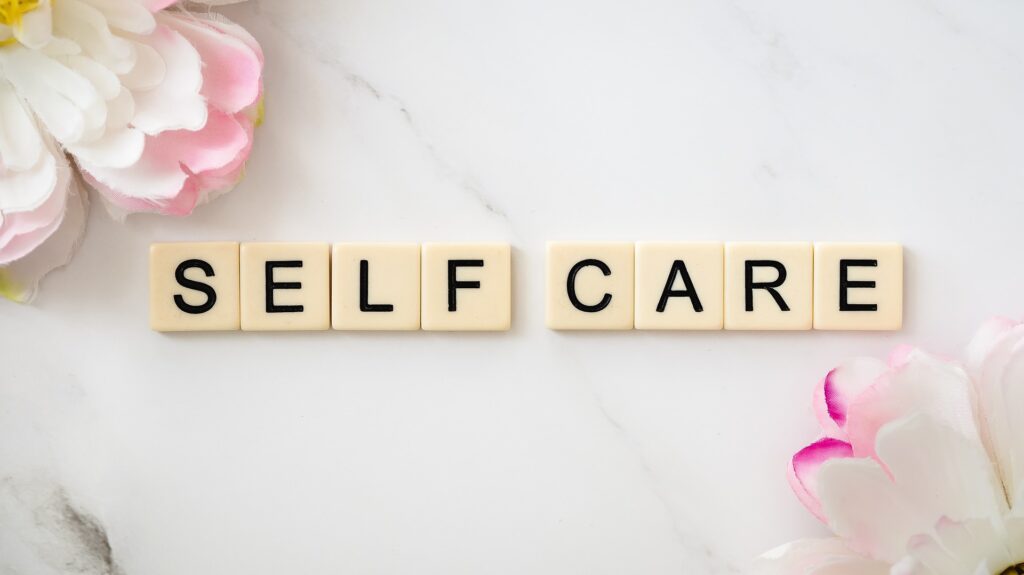10 Tips for Getting Out of a Rut


Do you feel like you’re on a hamster wheel and you’re running in place but going nowhere? Have you been doing the same thing everyday and your drive and life force is being drained out of your body slowly but surely and you’re becoming a flat tire with nothing to look forward to or live for? You could be stuck in a rut.
Life can oftentimes feel bland and this mental and emotional stagnation can trick you into giving up on yourself or worsening your already fragile state. Things become gloomy and you can’t be bothered by life anymore.
The good news is that you don’t have to be in this deep state of despair for the rest of your life :you can work on a way out, so here are 10 ways that you can get yourself out of a rut.
- Acknowledge and Accept That You’re in a Rut

A dialectic behavioural therapy tool for self-validation is acknowledgement of a feeling or emotion, acceptance of it and understanding why we’re feeling what we’re feeling. This skill focuses on accepting the emotions you’re experiencing, especially if you struggle with emotional regulation . Similarly, this skill can be used to identify and remedy a rut.
We may think that if we acknowledge the rut, we are doomed to be in it forever. Luckily, nothing lasts forever and we can feel what we’re feeling and move on from it. Thoughts like “my life is actually good” or “I’m just tired” are counter-productive and actually make the rut worse because you’re not acknowledging that you are going through a difficult time. It’s no judgment to you, but what would help would be to acknowledge and accept that this is where you are and identify why you’re there.
Analyzing what got you into the rut is important too. If it’s a certain thought or behavioural pattern, a life event or a stressful job situation, it would be worth looking into how it came about and extending compassion to yourself. Maybe you need to do some scaling back but self compassion is a vital ingredient in getting out of the rut. Feel all of your feelings but don’t dwell on them for too long.
- Make Small Changes to Your Routine

After recognizing that you’re in a rut, you might want to destroy everything you have in terms of whatever you have happening in your life and starting from scratch. That’s actually extremely overwhelming and the possible failure of changing everything at once and being still stuck, can deepen the rut. People don’t like leaving their comfort zones so introducing different experiences into your daily life can be helpful.
A good strategy would be to slowly incorporate small changes into your routine. Maybe you’re doing the same thing everyday, change up one thing either by adding something new or subtracting something old. Be a bit spontaneous.
When it comes to bigger tasks, it’s helpful to break it down into smaller tasks. Downsizing project tasks also helps with completing them and productivity.
- Take Care of Yourself

Being emotionally stuck is draining on your energy and health. You feel fatigued and unmotivated. Analyze how you have been taking care of yourself up until now. Inquire about your sleep quality, food choices,how you’re processing your emotions, consistent exercise and rest periods. Having high, healthy levels of these elements increases energy so that you become passionate about life and stay on top of your goals.
As overused as it sounds, practicing self care is good for your health and gets you unstuck. Consider tweaking your diet to include more nutrients and allowing more rest into your schedule for now along with self-compassion is necessary for mental health.
- Take Breaks and Go Outside

Physically removing yourself from your work desk and recharging has great benefits for your energy. A study by Draugiem Group states that taking frequent breaks helps in productivity and your health. More of your work gets done during your focus time and when you take breaks, new ideas pop up. But it’s important to truly disconnect from your work. Do you not get quality sleep at night? Consider taking a nap when and if you can or maybe sleeping earlier to get more REM sleep. Take a deep breath and unplug.
Another helpful tip is to be out in nature and go outside for a walk. A research study by Oppezzo and Schwartz in 2014 shows that going outdoors has a positive impact on the brain and enhances creativity. It’s also a great, quick way to get some quality exercise and to defog your brain.
- Forget Perfection and Shift Your Focus to Progression

Perfection doesn’t exist, even if it’s an ideal that we strive for. It can put you back in a rut. It’s a fantasy that will make you feel like your work is never good enough. This creates a fear of failure that holds you back from even starting something that you’re passionate and care about because the fear makes you think that you’re never going to be good enough.
An idea for reducing perfectionism is to allow it to lose its power over you. By acknowledging your perfectionist tendencies and your plans to detach from it, you allow it to fade away and you have more ideas that come to you and become less of a chokehold on your creativity because now they don’t have to be perfect, they just need to be. Look at your daily progress and celebrate it. That is worth more than perfection.
- Get Moving and Do Some Exercise

Exercise increases dopamine levels, helping you to feel better. What better way to trick yourself out of a dark hole? Dopamine is a feel good hormone. The better your physical health becomes, the better your mental health is as there is a correlation between the two. It’s a great tool for getting emotionally unstuck. A research concluded that it also increases blood flow and creativity.
- Recognize the Vices That Deepen The Rut and Keep You In It

When life gets hard, we use certain coping mechanisms to distract us from the pain and the hardship. Some of these guilty pleasures work when we just don’t want to deal with life.
We need to identify these crutches because they keep us stuck in the rut and we might even go deeper into the rut. Honesty is crucial for healing and recovering. Maybe try to find healthier alternatives to your coping mechanisms for relaxation and getting you out of a difficult time. Instead of reaching for the bottle, maybe you can do adult colouring for stress management.
- Re-examine Your Goals and Priorities (Again)

Having a purpose in life or feeling like you have one is a good North Star that guides you on your path. It’s your willpower reserve and you can always tap into it for motivation and inspiration.
However our goals and priorities change and it’s necessary to be aware of them and if they still align with our values and who we are at that time. It’s permissible and normal to change your mind about something that’s no longer working for you. It’s about recreating your happiness in your own way.
So try to have sessions where you keep track of your goals, priorities and time and any changing dynamics. Be aware of how you spend your time and see if you can use more of your time to do the things that you are focusing on. Reserve harsh self judgment, focus on moving forward and get back on track, no matter how many times you fall.
- Hold on to Your “Why?”

As we’ve already seen, purpose is important because it’s your North Star . Changing it when necessary is also important. However, if you find that you don’t need to change it, dive deeper into it. Your purpose spurs you to move forward. Remembering why you started on a particular job, journey, or project helps you when you feel caved in, stuck or lacking in your belief of self.
Ask yourself “why?” “Why am I doing this?” “What is my unique vision for my life?” Try making a list whenever you feel discouraged and keep it somewhere you can see it so that you subconsciously remind yourself of what it is you want. You can even make an old-school vision board or try using an app like Pinterest.
- Get Support

As much as a rut can be tiring and feel like a rabbit hole you can’t escape out of, you eventually come out of it after a few weeks or even days with adequate rest, reflection and replenishment. Even with all of the solo work you did, you can reach out for help to anyone you trust and feel safe enough to be honest with about your struggle at the time.
We also need to recognize when we’re not in a rut. When these feelings of apathy become prolonged (longer than 3-4 weeks)and you start:
- Having a hard time with feeling positive emotions
- Feeling hopeless and helpless
- Losing interest in things you love
- Feeling fatigued more often
These factors could be indicators of a possible depressive disorder and you should seek professional help. You should not be ashamed to ask for help. Asking for help is not a weakness. Strength comes from knowing that you don’t have to shoulder something this difficult all by yourself.
Being stuck is a normal occurrence for people. However, if you neglect to be forgiving and compassionate with yourself, it can derail your progress and make it unnecessarily uncomfortable. Take it one moment or one day at a time with love. And remember that you don’t have to go through it alone.
REFERENCES
Bridges , F., 2017. 6 ways to get out of a rut. Google. Available at: https://www.google.com/amp/s/www.forbes.com/sites/francesbridges/2017/10/31/6-ways-to-get-out-of-a-rut/amp/ [Accessed August 29, 2021].
Cherry, K., 2020. What can you do to get out of a rut? Verywell Mind. Available at: https://www.verywellmind.com/how-to-get-out-of-a-rut-4172608 [Accessed August 28, 2021].
Chua, C., 2020. How to get out of a Rut: 12 useful ways to get unstuck. Lifehack. Available at: https://www.lifehack.org/articles/featured/12-useful-ways-to-get-out-of-ruts.html [Accessed August 29, 2021].
Oppezzo, M. & Schwartz , D., 2014. Apa psycnet. American Psychological Association. Available at: https://doi.apa.org/doiLanding?doi=10.1037%2Fa0036577 [Accessed September 1, 2021].
Raypole, C., 2020. 11 ways to break out of a rut. Healthline. Available at: https://www.healthline.com/health/how-to-get-out-of-a-rut#check-your-feelings [Accessed August 29, 2021].
Thomas , T., 2020. 7 mental shifts to get yourself out of a rut. Google. Available at: https://www.google.com/amp/s/amp.mindbodygreen.com/articles/6-mental-shifts-to-help-you-get-out-of-a-rut-from-a-psychologist–18675 [Accessed August 29, 2021].
Zetlin, M., 2019. For the most productive workday, science says make sure to do this. Inc.com. Available at: https://www.inc.com/minda-zetlin/productivity-workday-52-minutes-work-17-minutes-break-travis-bradberry-pomodoro-technique.html [Accessed September 1, 2021].



Responses